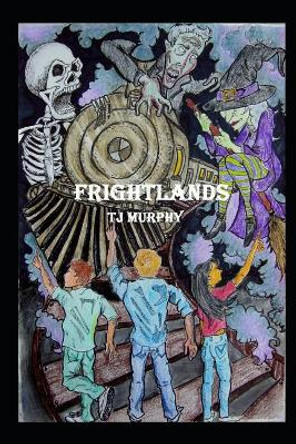Description
In Rewriting Indie Cinema, J. J. Murphy explores these alternative forms of scripting and how they have shaped American film from the 1950s to the present. He traces a strain of indie cinema that used improvisation and psychodrama, a therapeutic form of improvised acting based on a performer's own life experiences. Murphy begins in the 1950s and 1960s with John Cassavetes, Shirley Clarke, Barbara Loden, Andy Warhol, Norman Mailer, William Greaves, and other independent directors who sought to create a new type of narrative cinema. In the twenty-first century, filmmakers such as Gus Van Sant, the Safdie brothers, Joe Swanberg, and Sean Baker developed similar strategies, sometimes benefitting from the freedom of digital technology. In reading key films and analyzing their techniques, Rewriting Indie Cinema demonstrates how divergence from the script has blurred the divide between fiction and nonfiction. Showing the ways in which filmmakers have striven to capture the subtleties of everyday behavior, Murphy provides a new history of American indie filmmaking and how it challenges Hollywood industrial practices.
About the Author
J. J. Murphy is professor of film and Hamel Family Distinguished Chair in Communication Arts at the University of Wisconsin-Madison. He is the author of Me and You and Memento and Fargo: How Independent Screenplays Work (2007) and The Black Hole of the Camera: The Films of Andy Warhol (2012).
Reviews
J. J. Murphy's love and passion for U.S. indie cinema is evident on every page. His in-depth dissection and analysis of trends in the cinematic arts show us that the medium is still evolving, and different approaches to screenwriting, directing, and producing films are what keep it alive. -- Sean Baker, director of The Florida Project
Rewriting Indie Cinema exemplifies one of the best things cinema scholarship can do: it demonstrates an important continuity within a wide range of interesting films while providing the general film-interested reader as well as the academic film historian with a new list of accomplished filmmakers to explore. Murphy is the person to mine the considerable territory between comparatively big-budget indie filmmaking based on screenplays and the free-form experimental filmmaking of Warhol. -- Scott MacDonald, author of Avant-Doc: Intersections of Documentary and Avant-Garde Cinema
Rewriting Indie Cinema demonstrates that independent U.S. films since the 1950s have explored many paths between pure improvisation and the script-based pre-production of classical Hollywood cinema. Murphy wears his erudition lightly, and the continuities and distinctions that he establishes between methods of improvisation in cinema and theater are lucid, convincing, and well-informed, without the author ever over-theorizing for the sake of it. -- Steven Price, author of A History of the Screenplay
A fascinating new look at the role played by psychodrama and improvisation in American independent cinema, past and present. Grounded in detailed case studies, Rewriting Indie Cinema provides a wealth of insights into alternative scripting and production practices that place spontaneity and performance center-frame. J. J. Murphy's deep knowledge of art and independent cinema shine through on every page. -- Kathryn Millard, author of Screenwriting in a Digital Era
Rewriting Indie Cinema sweeps from the 1950s to recent films like The Rider and The Florida Project. By looking for alternatives to the fully prepared screenplay, it posits a fresh way of thinking about American film artistry. -- David Bordwell * Observations on Film Art *
Lively and knowledgeable text, coupled with excellent frame grabs as illustrations, makes this a sharp, illuminating book. * Choice *
Awards
Winner of Best Publication of a Monograph, Screenwriting Research Network 2019.
Book Information
ISBN 9780231191968
Author J. J. Murphy
Format Hardback
Page Count 360
Imprint Columbia University Press
Publisher Columbia University Press
Series Film and Culture Series
Details
Subtitle: |
Improvisation, Psychodrama, and the Screenplay |
Series: |
Film and Culture Series |
Imprint: |
Columbia University Press |










